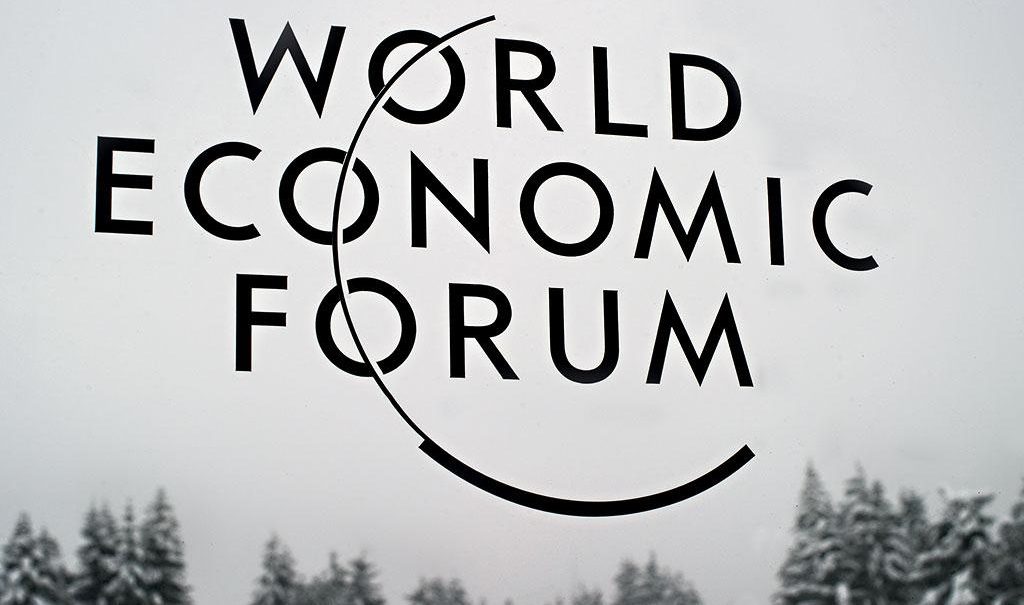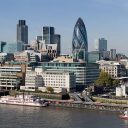Davos’s time is up

Image: CC BY-SA 2.0), Ministério da Indústria, Comércio Exterior
In times of disjuncture and hardship, an impulse exists to take flight from reality and retreat into the comfort of old-worn habits and familiar surroundings. To some, this offers the opportunity to reflect and reimagine. Many may simply desire to escape, or remain entirely ignorant to the problems at hand. For others, to be seen to act is all that matters. It is in this way that we can identify the different tribes that amassed in Davos for this year’s annual meeting of the World Economic Forum.
Whether they realise or not, the attendees of Davos occupied a time and space in which two of the most significant stories in human history are colliding against the hubris and misguided optimism of the global elite. The first is the story of the prevailing set of economic and political ideas in major ‘developed’ nations, so-called neoliberalism. The neoliberal story began over forty years ago, and – as inequality grows and economic crisis looms – has become one of failure. The second story concerns the impact of human activity on the natural world and, specifically, the implications of these impacts crossing safe thresholds. This story began much longer ago, back in the furnaces of the industrial revolution and on the creaking ships of colonial pirates, and has reached its terminal phase as global impact portends global collapse.
The neoliberal story
Davos 2018 came at a bad time for neoliberalism. In Britain, the preceding week was dominated by the collapse of the outsourcing giant Carillion and the exposure, to a wider audience, of the pervasive extent and expensive failure of the private finance initiative (or PFI). Many PFI schools and hospitals were built to unacceptably (even lethally) low standards, later than promised, and, when firms failed to fulfil their obligations – as they often did – the state socialised the cost while executives walked away with their pay-packets untouched. In all, we will likely pay over £310 billion for assets worth around £55 billion.
PFI has been one of the central pillars of recent British political economy. The continued failure of PFI makes it even harder to deny that the status quo is founded on a set of ideas used to justify unfettered profit maximisation and sweep aside any impediments to that end. In their infancy in the fifties and sixties, the development of these neoliberal ideas was encouraged by economic interests whose primacy was threatened by the New Deal and post-war consensus. Money flowed freely to entrepreneurial academics, who, in turn, told corporate leaders what to think and say. The ever lucid Milton Friedman, an economics professor in America and the supplest of intellectual gymnasts, gave them exactly what they needed when proclaiming that the sole social responsibility of business was to increase profits. In doing so, firms must, according to Friedman, stay “within the rules of the game, which is to [engage] in open and free competition without deception or fraud”. Inevitably, lavishly funded lobbying operations ensured the ‘rules of the game’ were changed, while, presumably, successive governments sought to minimise barriers to profit-making in order to maximise social welfare. It is easy to imagine the laughter of those benefiting from this arrangement pealing out over Westminster as they shopped between meetings with one uncritical adherent after another. Needless to say, there is nothing socially responsible about charging an NHS hospital £333 to replace a lightbulb.
The wider array of neoliberal ideas justifies policies that have relinquished economically productive state assets, create extraordinary levels of waste through unnecessary marketisation, and, ultimately, captured the state as a means to guarantee revenue streams with little to no risk. In theory, neoliberalism essentially ignores market failure; in practice, it benefits from it, actively promoting it at each turn. The financialisation of the economy is the deeper, inevitable consequence of a dictatorship of ideas that elevates short-term profit maximisation as the driving impulse of modern societies and economies.
The cost of this project can no longer be ignored. As is customary, Davos sees the release of the latest, greatest statistics on the failures of the prevailing economic model. Just over 40 people (nearly all men) now likely hold more wealth than half of humanity, with 82% of global wealth generated in 2017 going to the wealthiest 1%. In the UK, FTSE 100 bosses earn, on average, 120 times more than employees. These are the symptoms of a system that relentlessly minimises costs to maximise shareholder returns, eroding workers’ rights and exerting enormous influence on policymaking and political ideas. In 2000, Bill Clinton addressed Davos, the first sitting US president to do so, and expounded the virtues of globalisation as a unifying economic and social force. It is apt that Trump – a president whose position is partly a result of the hatred frothing from the dispossession and corruption bred by neoliberal policies – was the next president to do so.
As Trump brings the circus, bullish global markets belie the true global economic picture. Ten years after the Crash, its lessons remain largely unlearnt as optimistic investors commit the oldest sins in the newest ways and stock markets break records. Comfort breeds complacency and the word on the snowy boulevards of Davos was that another serious correction is coming. As younger generations gaze upon this spectacle – many of them from countries were youth unemployment still exceeds 30% – they could be forgiven for concluding that those in power are in charge only inasmuch as it serves them to be.
The environmental story
But the greatest tragedy of neoliberalism may be that it dominated our thinking over the period in which we had a final chance to halt catastrophic environmental change. Human activity has always impacted the natural world but the severity and reach of these impacts has accelerated exponentially over the last few hundred years, at least since Western powers began to establish colonial empires. With the advent of industrialisation and the first wave of globalisation in the 1800s, these impacts began to increasingly alter the functioning of the great biogeochemical cycles that facilitate life on earth. By the 1970s, as the global population reached 4 billion, the consequences of these impacts became evermore obvious, with our understanding enhanced by scientific advance. The decade of the seventies saw awareness of the growing crisis reach a mainstream audience, helped by landmark studies such as the Limits to Growth. Recurrent energy crises over the decade provided the economic pressure to seek more efficient, sustainable technologies, at least in providing alternatives to oil.
But these crises also sounded the death knell of the post-war social democratic era, providing the platform upon which an emboldened neoliberal movement could win arguments and, as the eighties began, power in the UK and USA. The neoliberal policies that have dominated rich nations and the global development paradigm ever since seek to maximise profit, usually through consumption, by extending markets across the world and minimising cost, particularly that arising from regulation. In segmenting environmental degradation as an external cost and insisting on the inadequacy of all incentives but the pecuniary, neoliberalism’s theoretical basis set the conditions for catastrophe. In practice, the relentless lobbying and legitimisation of regulatory arbitrage and tax avoidance has eroded state functions at precisely the moment they were needed to resolve the coordination problem at the heart of global environmental change.
In the 40 years since neoliberalism sought and won power, a third of arable land across the world has been lost. Around two thirds of vertebral life has died. Agricultural practices have disrupted the nitrogen cycle more than at any point in its 2.7 billion year history. Ours is the age of the Sixth Mass Extinction, the last being that of the dinosaurs, the rates of which are exacerbated by climate change. According to the UN, the rate of toil soil degradation means there may only 60 global harvests left. In all, human activity has pushed environmental systems into ‘unsafe’ operating spaces, threatening the preconditions upon which civilisation can flourish, or even exist.
Societies are already feeling the effects, with a causal link being established between climate change driving a higher incidence of extreme weather, the resultant damage to crop yields, and the stress imposed by rising food prices in regions with already fragile socioeconomic positions, particularly in the Middle East and North Africa. In Davos, the yearly World Economic Forum risk report now regularly warns of ‘profound social instability’ resulting from a complex web of factors, ranging from economic crisis to migration, all of which are magnified by environmental degradation. Risk is becoming increasingly systemic, compounding and threatens non-linear outcomes. In response, institutions must become more resilient or global cooperation could be threatened as nations turn inwards to protect their interests.
What next?
As we have seen, parts of these stories are recognised by Davos’s organisers and guests. This year’s theme was “Creating a Shared Future in a Fractured World Inequality” and there was no shortage of panel discussions on inequality, climate change, short termism, fake news, the gender gap. As is customary, these discussions are predominantly conducted behind closed doors and between old men. In turn, media commentators grasp for engaging metaphors and snappy headlines to enliven the whole affair. This year’s favourite concerns the heavy snowfall and the increased threat of an avalanche engulfing the hapless participants of the ‘New Consumption Frontiers’ panel. There is strength in this metaphor, particularly from the perspective of younger generations, who look around aghast at the unfolding catastrophe brought about by the twin stories of the neoliberal era and environmental decline.
On the former, the status quo’s crisis of legitimacy is increasingly infecting its intellectual basis, with parties of both traditional left and right seeking to capitalise on the growing backlash against neoliberal ideas. In the UK, the 2017 election result and the clear depletion of the Conservative party as a governing and intellectual force stokes coals of excitement across the resurgent left. This is welcome, at least in that the Labour party and its hinterland are engaged in a process of disruption and intellectual innovation. Most notably, the voice and energy of younger generations sits at the heart of this project, which is essential, as it is they who must deal with the wreck of neoliberalism.
But the most damaging legacy of older generations is far worse than the loss of institutions, employment rights and social cohesion. As we get excited about moving beyond neoliberalism, we have to understand how the degradation – and maybe even collapse – of natural systems will dominate what is and is not possible into the future, whether our politics catches up or not. Recently, a special UN report on the chance of global warming reaching 1.5C was leaked. A working conclusion is that this could happen by the 2040s. This is also the decade that, dependent on a number of factors, soil fertility may be lost across most of the world, robbing nations of the ability to grow nutritious, or indeed any, food. The millennial generation will be in their forties and fifties by this point and will therefore have to deal with this grave new world. Nothing short of a global socioeconomic transformation to ensure the sustainability of human activity over the lifetime of the millennial generation is required. Even without the damage to economies and societies wrought by neoliberalism, this is arguably the most difficult task ever faced by humanity.
Thankfully, and to the credit of older generations, this transition is already underway. But time is running out and we must transition more quickly from opposition to proposition. In response, more and more young people are entering debates and positions of responsibility, facing up to the full reality of the task in front of them. In doing so, they must work closely with older generations, to learn from what they did well and what they did wrong, co-creating a leadership suitable for an uncertain future bolstered by welcoming stories of hope and redemption. Greater diversity and equality of representation from across the world is needed to combat what is and will remain a web of global problems – and must break through the artificial barriers being erected in the last throws of a dying order. We must not forget that we are more connected, more knowledgeable and more capable than at any point in human history.
Each year, Davos provides a platform for the world’s leaders to debate important issues and spur action at this crucial moment. But by being ignorant to the two greatest stories of the day, it does nothing of the sort, squandering time and resources. The hour is late, and Davos’s time is up.






